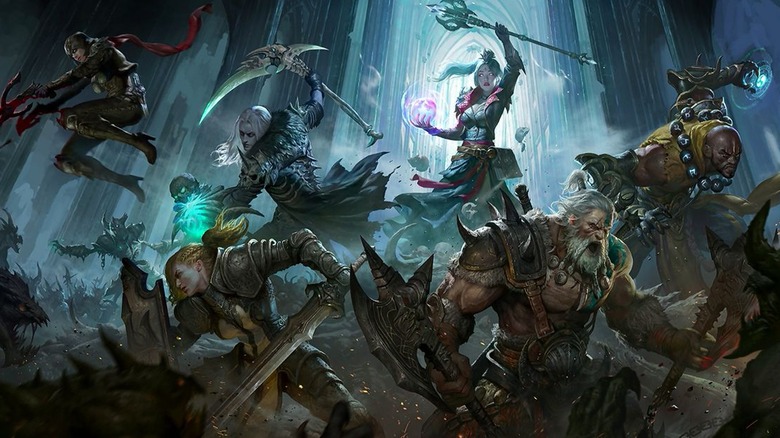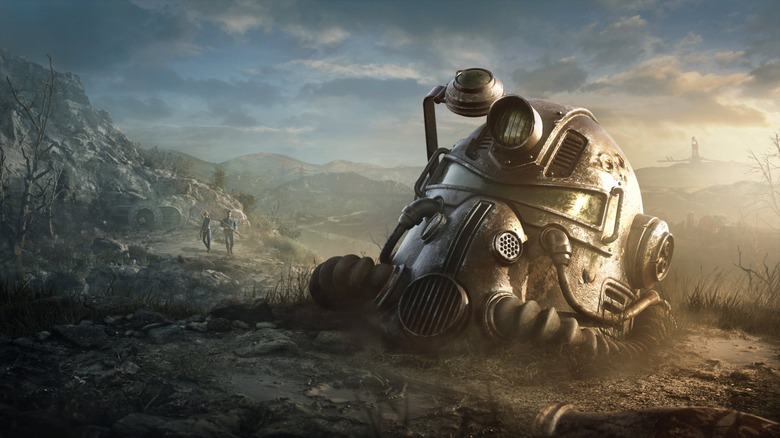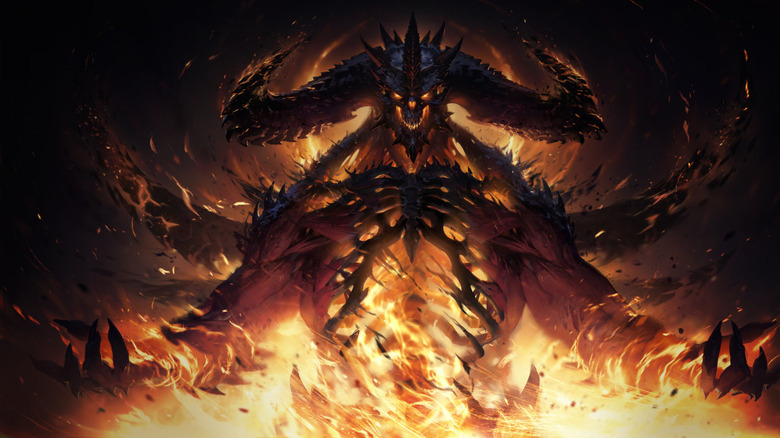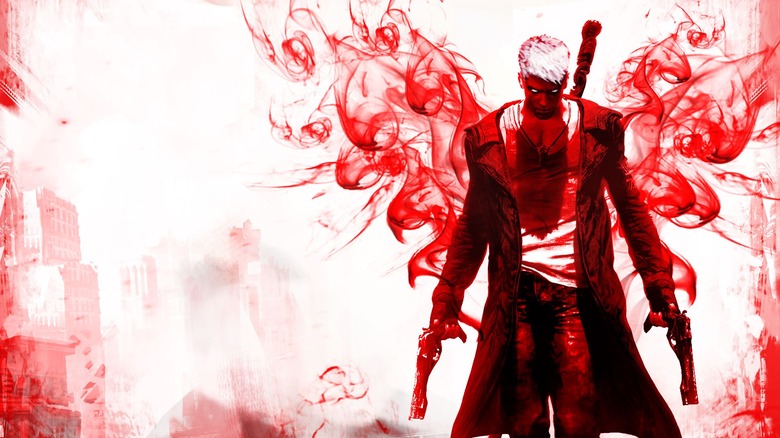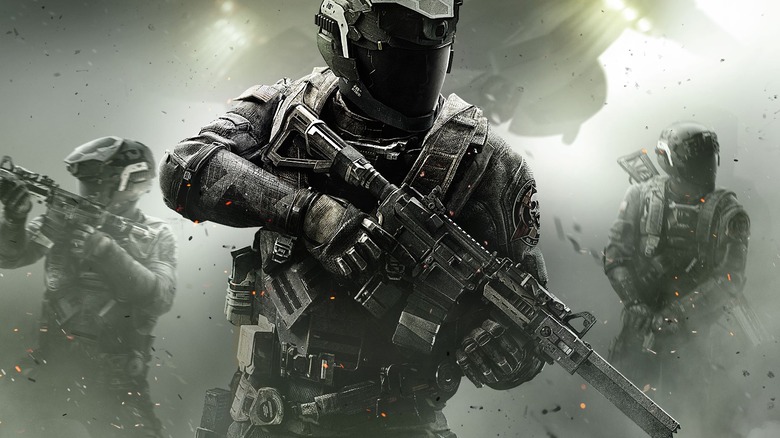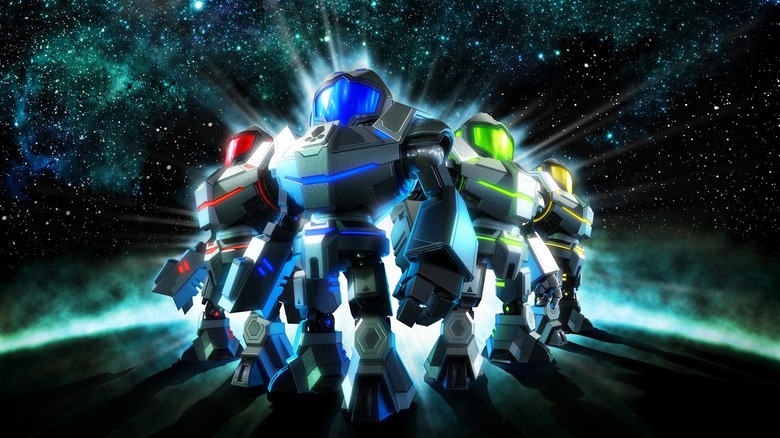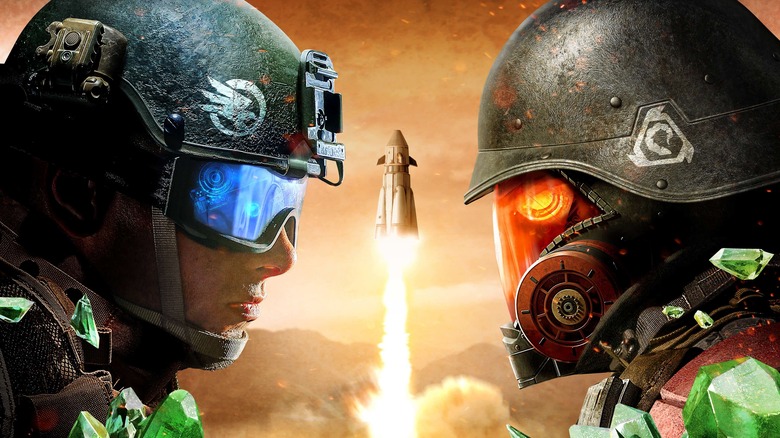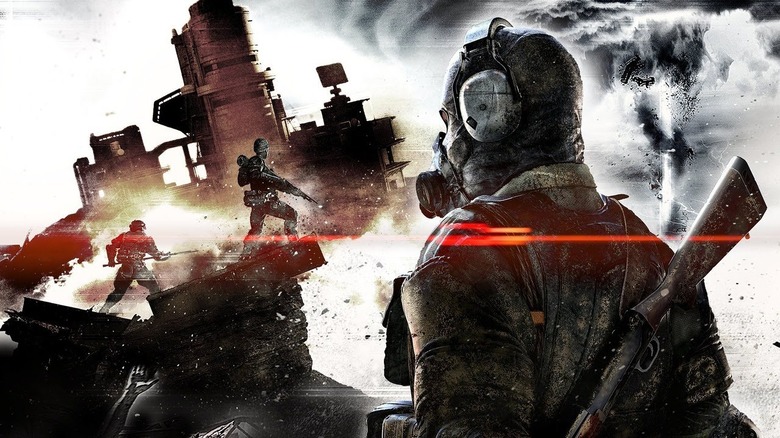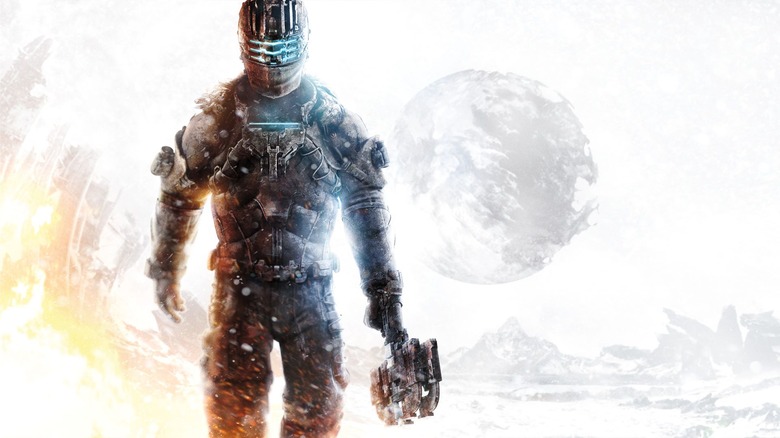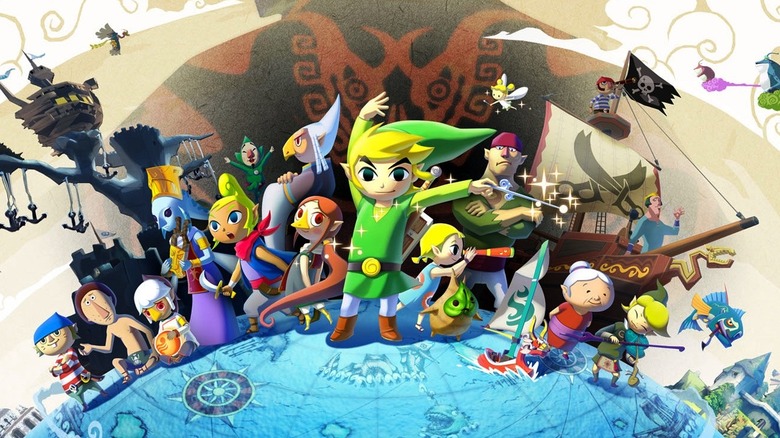Video Games Nobody Asked For
Gamers, especially in recent years, can be reliably counted on to react one of two ways to the new and unfamiliar: either the new thing is bad, at which point gamers will scream bloody murder and burn the developer to the ground; or the new thing is good, at which point, gamers will scream bloody murder and burn the developer to the ground. Among your surefire ways to drop blood in the waters of outrage is to take something gamers already love that they aren't already screaming bloody murder about, and give gamers a good solid reason to. Whether the new direction is good or bad, the rage is coming, and the only thing a good developer can do is simply make the best game they can and pray for eventual mercy. Here, regardless, are some of the most egregious left turns in recent memory, and how the rage manifested.
Fallout 76
Bethesda already rolled the dice on taking Fallout far away from its isometric roots before. Of course, that game was Fallout 3, and was immediately one of the most acclaimed titles of its generation. Sure, it's missing a lot of the edge and doesn't go nearly as hard on the pitch-black satire, but it still raised the bar for what the series was capable of.
So, of course, expectations were high that Fallout 76 would end up doing much the same, and then the reveal happened and ... it's an MMO. Now, there's nothing inherently wrong with taking a single-player RPG into MMO territory, but for a series that has gotten so much mileage out of the fact that it's a single wanderer's story, and was moving closer and closer with each game to becoming a post-apocalyptic Minecraft, fans were finally incensed enough to start screaming.
Diablo Immortal
A sequel to a game that hasn't seen a new main entry in some years, Diablo Immortal is going straight to mobile, where absolutely nobody trusts the developer's parent company to give players a simple, straightforward, no-nonsense version of the game they love, especially considering Diablo is a game so focused on loot drops to begin with.
The tale of Diablo Immortal has an extra-special ugly cherry on top, however. The game was announced on Blizzard's own stage at BlizzCon, following days of speculation that Diablo 4 was in fact in development. Meaning, it was an entire convention room full of people who had their hopes shattered for Diablo 4, went through the bargaining phase when a fan asked Blizzard designer Wyatt Cheng about a potential PC port, and became flat out furious after Cheng asked the disgusted crowd "Do you guys not have phones?!" Afterwards, Blizzard had the nerve to be surprised. Absolutely nothing about Diablo Immortal's life in the public eye has gone well.
DmC: Devil May Cry
One of the more tragic public beatings in recent memory, DmC took a series that was basically a hyperviolent anime with a preening J-metal frontman for a protagonist, and tried very hard to give it a more Western, adult spin. It was developed by Ninja Theory, whose last two games — the bafflingly underappreciated Heavenly Sword and Enslaved: Journey To The West — gave every indication they could handle the action side of things. It had a script assist from acclaimed writer/director Alex Garland (of 28 Days Later, Dredd, Ex Machina, and Annihilation fame), and the game also gave us a new Dante who was less Dir En Grey/Buck-Tick, more Marilyn Manson/Ministry, who doesn't even get his signature silver locks until the game's final moments.
Despite the pedigree, all fans saw was their beloved Dante getting a complete Western overhaul, and regardless of the game itself (which, for the record, is fantastic, and there's more than a little of it in what we've seen of Devil May Cry 5), the hate came in fast, leading to death threats against several of Ninja Theory's employees, and the game flopping hard. Ninja Theory landed on their feet, finally landing their first bona fide critical and sales hit with Hellblade: Senua's Sacrifice, but all fans really wanted, it seems, was the old Dante back, and they were willing to burn everything to do it.
Call of Duty: Infinite Warfare
At this point, Call of Duty is less a franchise than an institution. For millions of people, the annual Call of Duty might be the only game they buy in a year. This is the same strategy a lot of Madden fans adopt, and the two series have a lot in common as far as how much both games are able and willing to innovate each year.
With that in mind, Infinite Warfare would be like if one of those gamers cracked open Madden 2020, and it was a copy of Rocket League with a Madden sticker on it. It's actually a pretty good game, kinda like Battlestar Galactica with all the philosophy and Cylons boiled out of it. But the modern warfare crowd is not the sci-fi space shooter crowd, and ne'er the twain shall meet. The first trailer for the game dropped and for a time was one of the most disliked videos on YouTube. The developers were, as per usual, being harangued long before the game even released. It didn't help that for about six months, Activision was holding the remastered Call of Duty 4 hostage as a bonus in Infinite Warfare's special edition, a decision that came with its own (justified, honestly) strain of outrage. The game came out, and while it was still a massive seller, it still managed only half of what it's predecessor did. A rather large chunk of COD's usual audience weren't having it.
Metroid Prime: Federation Force
Metroid has always been Nintendo's black sheep franchise. What many people don't realize is that despite the series' immense popularity in the West, Metroid is kind of a non-entity in Japan, and Nintendo is nothing if not loyal to the home country above all. Thus, we have these long stretches where Nintendo just sorta forgets that Metroid exists for a decade, and when they do remember, we wind up with a complete fiasco like Metroid: Other M.
Other M only made fans angry after they played the game, though. Federation Force, on the other hand, was an example of Nintendo doing everything wrong from the word go. Things started simple enough, with Nintendo showing off a fun little first-person mech soccer game during the Nintendo World Championships in 2015. Then came the announcement that, yes, it was a full-fledged game. Then the announcement that it was actually a Metroid Prime game. A very generic looking Metroid Prime game. And then the other shoe dropped that there'd be no Samus.
Bless Reggie Fils-Aime for trying to put the old Nintendo spin on things, but a Samus-less Metroid game after years of silence was far from what fans wanted, and they very, very loudly told Nintendo so. Thankfully, Nintendo has since made it up to them, with a stellar Metroid 2 remake on the 3DS, and the promise that a proper Metroid Prime 4 is happening for the Switch.
Command & Conquer: Rivals
Another in the category of giving fans what they want, but not how they want it, Command & Conquer is kind of the elder statesman of the RTS genre, stretching all the way back to the mid-'90s, and pumping out solid, respected titles time and time again. Until about 2010, when the series just, well ... stopped. Fans had been waiting for EA to resurrect the series ever since with a new proper entry. What they got at E3 2018 was Command & Conquer: Rivals. A mobile game.
Now, a mobile game based on a beloved franchise isn't necessarily a bad thing, but it is when your franchise hasn't been seen in almost ten years, and the company bringing it back from the dead has this nasty habit of adding all manner of exploitative, free-to-play, microtransactional nonsense into their full-fledged console games, let alone on mobile, which is pretty much defined by those exact things.
So, naturally, the alarms were sounded, the game's trailer was assaulted on YouTube, article after article was written about the danger, and somehow, the developer wondered why people weren't willing to give the game a fair shake.
Metal Gear Survive
Metal Gear Survive is less of a poorly conceived entry in a beloved franchise than a cynical punctuation mark ending the story of Hideo Kojima's ugly exit from Konami. As a game it's little more than a transplant of some Metal Gear Solid 5 assets into, for some reason, a zombie action title, the kind of thing you'd stumble on when you're just absent-mindedly browsing the mod forums on Steam. But that was less important than what it represented: the ultimate proof that Kojima was the guiding light for the franchise, and without him, the best Konami could do was the most high-profile asset flip ever executed.
Konami's long-suffering fans, still nursing the wounds from finding out Silent Hills wasn't happening, weren't having it, and came at Survive knives out from the second it was announced. Fast forward a few months, the game was already being offered as a PlayStation Plus freebie, the already paltry user base was non-existent, and if there were any people still interested in the thing, those folks fled when it came out that Konami, in their infinite naked greed, was charging $10 for the luxury of a second save slot.
Dead Space 3
Arguably, Visceral Games had already pressed their luck even making Dead Space 2, considering how special the first game was, and how many creative pitfalls they could've fallen into with the sequel. Thankfully, save for giving Isaac Clarke a voice, Visceral managed to avoid all of them with the sequel. Unfortunately, creative integrity only gets you so far when your parent company is EA.
Citing poor sales, EA got a bit more hands-on with Dead Space 3, mandating the series shift away from the vicious psychological horror that carried the first two games, and towards broad-appeal multiplayer action. The result was a game that more resembled Capcom's Lost Planet than anything else, to the utter disgust of its longtime fans the second it was announced, and to their fury when it was reported that microtransactions would be included. Dead Space 3 turned series veterans right off, and failed to gain the series any new fans. It was the end for the franchise and, ultimately, Visceral themselves, who were shuttered by EA in October 2017.
The Legend of Zelda: The Wind Waker
Possibly the greatest example of angry gamers being on the wrong side of history, it feels almost blasphemous to suggest that any Zelda game could be regarded as anything less than a blessing. But that's exactly what happened when The Wind Waker was first unveiled.
In fairness, Nintendo was partially to blame here. Back in 2000, Nintendo used a short, moody pre-rendered clip of Link fighting Ganondorf to show off what the soon-to-be-released GameCube was capable of. Instantly, fandom got their hopes up that this was, indeed, what the next Zelda game would look like, possibly the ultimate promise of what a Zelda game could be. Instead, they got ... a cartoon.
Hardcore fans saw The Wind Waker as a bait-and-switch, a betrayal, and a sign that Zelda — whose last entry at the time was the grim and melancholy Majora's Mask — would be reverting to a kiddie game, a stigma the game and the console carried for years after. Irate fans didn't stop screaming about it whenever Nintendo was brought up in polite conversation.
Of course, the twist here is that Wind Waker released to rave reviews, sold like crazy, and is widely considered a masterpiece, one of the most beloved entries in the series. Fast forward a decade, when the cel-shaded Breath of the Wild was unveiled.
This time, it was greeted with applause.

